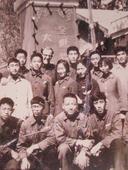Half a century of observation qualifies Australian expert to hail Party's success
 A teacher gives pointers to a pupil during a class on the basics of Peking Opera at a primary school in Longyao county, Hebei province, on Monday. Over the past years, China, under the leadership of the Communist Party of China, has been protecting traditional culture. (LUO XUEFENG / XINHUA)
A teacher gives pointers to a pupil during a class on the basics of Peking Opera at a primary school in Longyao county, Hebei province, on Monday. Over the past years, China, under the leadership of the Communist Party of China, has been protecting traditional culture. (LUO XUEFENG / XINHUA)
Editor's Note: Many people from overseas have made a contribution to China's development over the years. As China celebrates the 100th anniversary of the founding of the Communist Party of China, China Daily looks at the lives and contributions of these friends from afar, who've not only witnessed, but also participated in, the country's transformation over the years.
As China prepares to celebrate the centenary of the founding of the Communist Party of China, Australian Sinologist Colin Mackerras says the country and its people "have a lot to be proud of".
"Much of what China has achieved today is down to the Party and its leadership. Sure, there have been mistakes along the way. But no country is infallible," says the professor emeritus at Griffith University from his home in Queensland state.
When it comes to urbanization, I think China has done extremely well by international standards. … Much of that is down to the Party as it pushed ahead with reforms for a prosperous China and a peaceful world
Colin Mackerras
Despite his 81 years, Mackerras still has the same enthusiasm and passion for China and its people as he did when he first arrived in Beijing as a young, married English teacher straight from the hallowed halls of Cambridge University in 1964.
As a foreigner who has traveled extensively in China, he has seen, firsthand, the changes that have taken place from late Chairman Mao Zedong to President Xi Jinping. And his endeavors to build a better understanding between the two countries have earned him prestige.
When President Xi delivered his historic address to the Australian Parliament on Nov 17, 2014, he noted the presence of Mackerras among the invited guests to hear the speech.
After that first trip in 1964, Mackerras has since visited China over 60 times and made tireless efforts to present a real China to Australia and the world, based on his personal experience, of the country's development and progress, Xi said.
It was the Chinese government which invited the scholar who has since written extensively on China, including its culture, opera, and minorities, and Western images of China.
Even today he still finds China and its people fascinating.
"Looking back to when my wife and I first arrived in 1964 the change has been staggering. There is simply no comparison," he says.
"The people we met back then and have remained friends with are so much better off today… so much.
"The standard of living is a world apart. Better food, clothing, where you can live, travel, work and… well, just about everything is so much better today."
The academic says young people now live much better than their parents and grandparents did.
Even in the countryside life is much better than it used to be.
"Life is still hard but the standard of living for the people of rural China has improved enormously. But it must be pointed out that there has been a dramatic shift from the countryside to the urban areas in the last 50 or so years," Mackerras said.
"The leadership has encouraged greater urbanization and I personally think this is a good thing. The reasons are obvious: better education, housing, jobs, health, entertainment, culture, libraries … these things matter to people."
China's urban boom has not been without its critics, however, who say it has created traffic congestion and air pollution. It has even been suggested that rapid urbanization has destroyed traditional cultures.
 At study and play, young Chinese, such as this girl at a kindergarten in Yunnan's Zhenxiong county on Nov 11, enjoy facilities that have improved greatly over the decades. (WANG GUANSEN / XINHUA)
At study and play, young Chinese, such as this girl at a kindergarten in Yunnan's Zhenxiong county on Nov 11, enjoy facilities that have improved greatly over the decades. (WANG GUANSEN / XINHUA)
Preserving traditions
"That may be true," Mackerras says. "But you don't hear about the cultures that are being preserved. It is regrettable that some cultures are disappearing, but the Party has tried hard to preserve some of those things with a reasonable amount of success. Modernization is bound to weaken traditions, and it does that everywhere, not just in China."
When the People's Republic of China came into being in October 1949, only 10 percent of the population lived in cities; today there are more people living in urban centers than in the countryside.
"That is an enormous change. I don't think many countries have changed so fast in that respect," Mackerras notes. "When it comes to urbanization, I think China has done extremely well by international standards. One thing you don't find in China is vast impoverished slums on the outskirts of big cities.
"Much of that is down to the Party as it pushed ahead with reforms for a prosperous China and a peaceful world."
Mackerras says he has seen major changes in China's healthcare delivery, not only in the urban centers but in the countryside as well.
The scholar says China has also done well in combating diseases and improving the quality of healthcare, which has boosted life expectancy enormously.
"Even infant mortality, something which used to be a major problem in China, has fallen to levels never seen in the country. That in itself is a major achievement," he says.
Is this due to the CPC?
The ideology of the Party is to look after the people. So yes, it deserves the credit, says Mackerras.
"Also, the people have been responsive to the changes that have taken place in China. They have been hard working and just got on with it.
"I think this is where many in the West find it hard to fathom. And that is how a country the size of China can transform itself in such a short period of time.
"And let us not forget the fact that China has eliminated absolute poverty … that is an extraordinary achievement. China has done more to eliminate absolute poverty than any other country."
Does the CPC deserve credit for that?
"Absolutely. It organized and implemented the policies," Mackerras says. "It deserves the credit."
As for politics, Mackerras says the country has been "evolving".
He says there is a "world of difference" between students in the 1960s and the students of today in China.
"I think today's students in China are much more aware of the world around them than they were 50 years ago. They are better educated and, more importantly, they travel… well up until COVID.
"This has made them more aware of the world they are part of and more confident … And why shouldn't they?"
Another area in which Mackerras says the Party has done "tremendous" work has been the status of women in China. Ever since the People's Republic of China was established and Chairman Mao Zedong made his now famous proclamation that "women hold up half the sky", their status has been important to China and it has risen drastically.
"Not only do they compete with men for professional jobs, they also hold down political positions locally, province and nationally," Mackerras points out.
"That is a major achievement. Women enjoy the same level of education as men," he says.
 Colin Mackerras with his students during one of his early visits to China. (PHOTO PROVIDED TO CHINA DAILY)
Colin Mackerras with his students during one of his early visits to China. (PHOTO PROVIDED TO CHINA DAILY)
Great changes
Asked how the Party has changed since the PRC was formed, Mackerras says one thing has not changed is the fact the Party wants stability-stability throughout China. China today is much more stable than it was in the past, he says.
"I think the country as a whole has become more confident and freer. I know that word free will be hard for some to understand. But looking back on the China I knew in the 1960s and the China I see today it is a different country," he says.
"The freedom people enjoy today is vastly different to what they had in the 60s. They travel, they meet and talk with people from vastly different cultures and backgrounds.
"Before COVID, students traveled overseas to advance their education in the great universities of the world."
This outcome is something that could not have been imagined 50 or 60 years ago, he says.
"Now look at where China sits as a world economic power? Last year with the world crippled by COVID-19 China was the only major economy in the world that actually grew," the academic says.
In October 2020, the International Monetary Fund, in its World Economic Output 2020, said China had overtaken the United States to become the world's largest economy. Using the more reliable and now widely accepted yardstick, called the Purchasing Power Parity (PPP meaning what you can actually buy with the money you have), it put China's economy at US$24.2 trillion compared to the US' US$20.8 trillion.
But selling China to the broader global community has not been easy, says Mackerras.
Probably more so to the US and its close allies such as Australia the problem is that for most of the 20th century the US has been on top-economically and militarily, and they cannot conceive of things being otherwise.
"Perhaps under the new administration the US might come to see things a little differently regarding China. But before that happens the US will need to tone down its rhetoric," he says.
"I personally don't see China as a military threat. Sure, China poses an economic challenge to the standing of the United States. Everyone can see that, including the IMF.
"As I see things, the problem is this. In July 1971 US president (Richard) Nixon's National Security Adviser, Henry Kissinger, went to China and arranged for Nixon to visit the next year. A major deal was made, with the American, Chinese and world economies becoming much more interlinked.
"On the whole, Americans and others assumed that over time China would adopt the Western model of liberal democracy. But China did not see it that way, and why should it?"
Mackerras says China wants to decide on its government model itself as an independent country.
"It's arrogance to assume the Western model of government is the only good one. Because China has not done so, many in the West have come to fear a rising and dominant China," he says.
"I personally don't see that. What President Xi Jinping is constantly saying in all his speeches at international forums is that he wants a peaceful world and a shared future for all mankind.
"They strike me as perfectly reasonable objectives. As for wanting to undermine our (Australia's) democratic institutions as some argue …well, I think that is absolute nonsense."
 Colin Mackerras. (PHOTO PROVIDED TO CHINA DAILY)
Colin Mackerras. (PHOTO PROVIDED TO CHINA DAILY)
Colin Mackerras
Professor Colin Mackerras is a specialist on Chinese history, musical theater, and ethnic minorities, as well as Australia-China relations.
He has written or edited more than 40 books and authored nearly 200 scholarly papers about China and is regarded as one of Australia's leading experts on the country.
Born in Sydney in 1939, he has visited China more than 70 times.
He worked at Griffith University in Queensland state from 1974 to 2004 and has been professor emeritus since retiring.
In China, he taught at the Beijing Foreign Studies University from 1964 to 1966 and has done so many times since. He has also taught several times at Renmin University of China in Beijing.
He won a Friendship Award from the Chinese government in 2014 and, in 2016, a Special China Book Award, given to foreigners who have made outstanding contributions in spreading Chinese culture through their writings.
His most important books include The Rise of the Peking Opera, 1770-1870; Chinese Drama, A Historical Survey; China's Minorities: Integration and Modernization in the Twentieth Century; Western Images of China; China's Ethnic Minorities and Globalisation.
He was awarded a Master of Letters by the University of Cambridge, in the UK, in 1964. He was awarded a PhD, on Chinese opera, from the Australian National University in Canberra in 1970.


